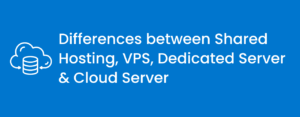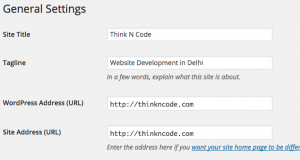A content management system (CMS) is a computer system that allows publishing, editing, and modifying content as well as site maintenance from a central page. It provides a collection of procedures used to manage workflow in a collaborative environment. These procedures can be manual or computer-based.
The core features of Content Management Systems vary widely from system to system; many simpler systems showcase only a handful of features, while others, notably enterprise systems, are much more complex and powerful.
In a CMS, data can be defined as nearly anything: documents, movies, text, pictures, phone numbers, scientific data, and so forth. CMSs are frequently used for storing, controlling, revising, semantically enriching, and publishing documentation. Serving as a central repository, the CMS increases the version level of new updates to an already existing file. Version control is one of the primary advantages of a CMS.
A web content management system (web CMS) is a bundled or stand-alone application used to create, manage, store, and deploy content on Web pages. Web content includes text and embedded graphics, photos, video, audio, and code (e.g., for applications) that renders other content or interacts with the user. A web CMS may also catalog or index content, select or assemble content at runtime, or deliver content to specific visitors in a personalized way, such as in different languages.
The article has been written with inputs from Wikipedia – http://en.wikipedia.org/wiki/Content_management_system
Hers is the list of Most preffered CMS.
WordPress
WordPress is a free and open source blogging tool and a dynamic content management system (CMS) based on PHP and MySQL. It has many features including a plug-in architecture and a template system.[clarification needed] WordPress is used by over 14.7% of Alexa Internet’s “top 1 million” websites and as of August 2011 manages 22% of all new websites. WordPress is currently the most popular CMS in use on the Internet. It was first released on May 27, 2003, by founders Matt Mullenweg[1] and Mike Little as a fork of b2/cafelog. As of December 2011, version 3.0 had been downloaded over 65 million times.
Drupal
Drupal is a free and open-source content management system (CMS) and content management framework (CMF) written in PHP and distributed under the GNU General Public License. It is used as a back-end system for at least 2.1% of all websites worldwide ranging from personal blogs to corporate, political, and government sites including whitehouse.gov and data.gov.uk. It is also used for knowledge management and business collaboration.
The standard release of Drupal, known as Drupal core, contains basic features common to content management systems. These include user account registration and maintenance, menu management, RSS feeds, page layout customization, and system administration. The Drupal core installation can be used as a brochureware website, a single- or multi-user blog, an Internet forum, or a community website providing for user-generated content.
Joomla
Joomla is a free and open source content management framework (CMF) for publishing content on the World Wide Web and intranets and a model–view–controller (MVC) Web application framework that can also be used independently.
Joomla is written in PHP, uses object-oriented programming (OOP) techniques (since version 1.6) and software design patterns, stores data in a MySQL or (since version 2.5) MS SQL database, and includes features such as page caching, RSS feeds, printable versions of pages, news flashes, blogs, polls, search, and support for language internationalization.
As of March 2012, Joomla has been downloaded over 30 million times. Over 9,200 free and commercial extensions are available from the official Joomla! Extension Directory, and more are available from other sources. It is estimated to be the second most used CMS on the Internet after WordPress.
There are around 1000 CMS available, we have only mentioned top 3, related to web site developmet and all three written in PHP. For a complete list of CMS, you can follow this link –
http://en.wikipedia.org/wiki/List_of_content_management_systems




